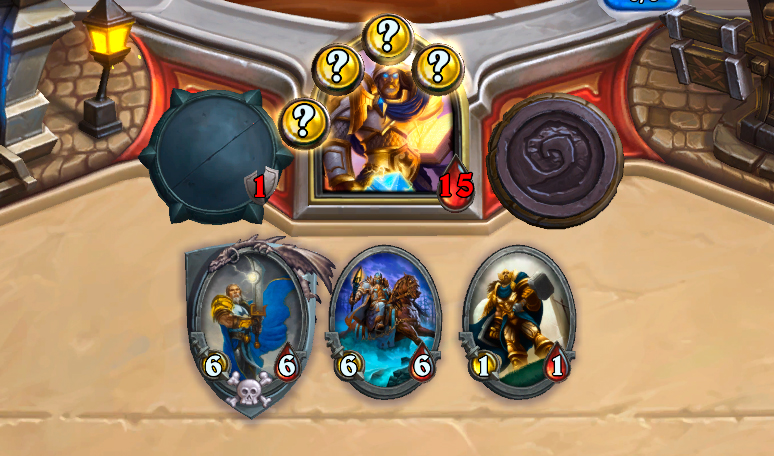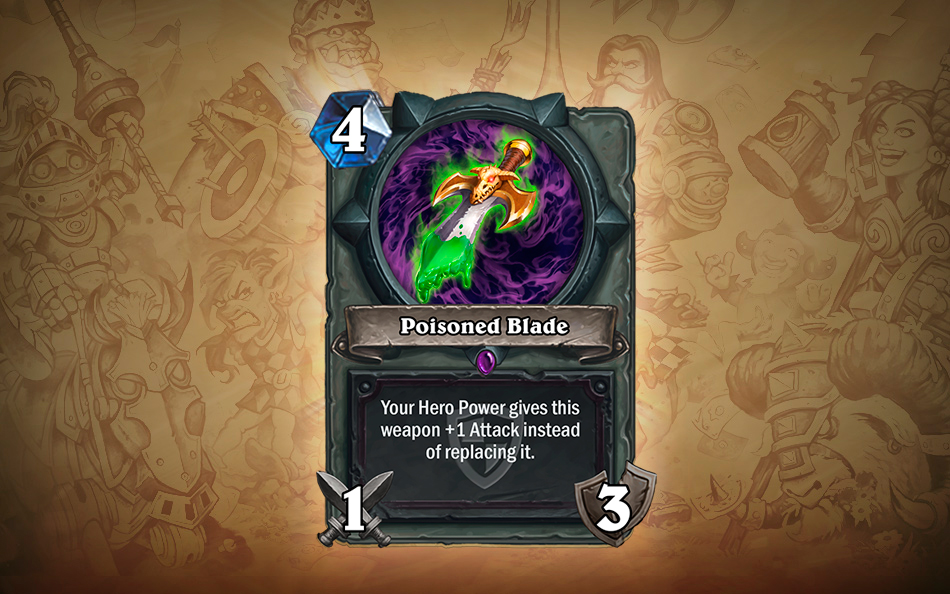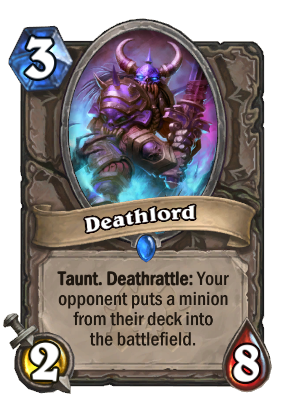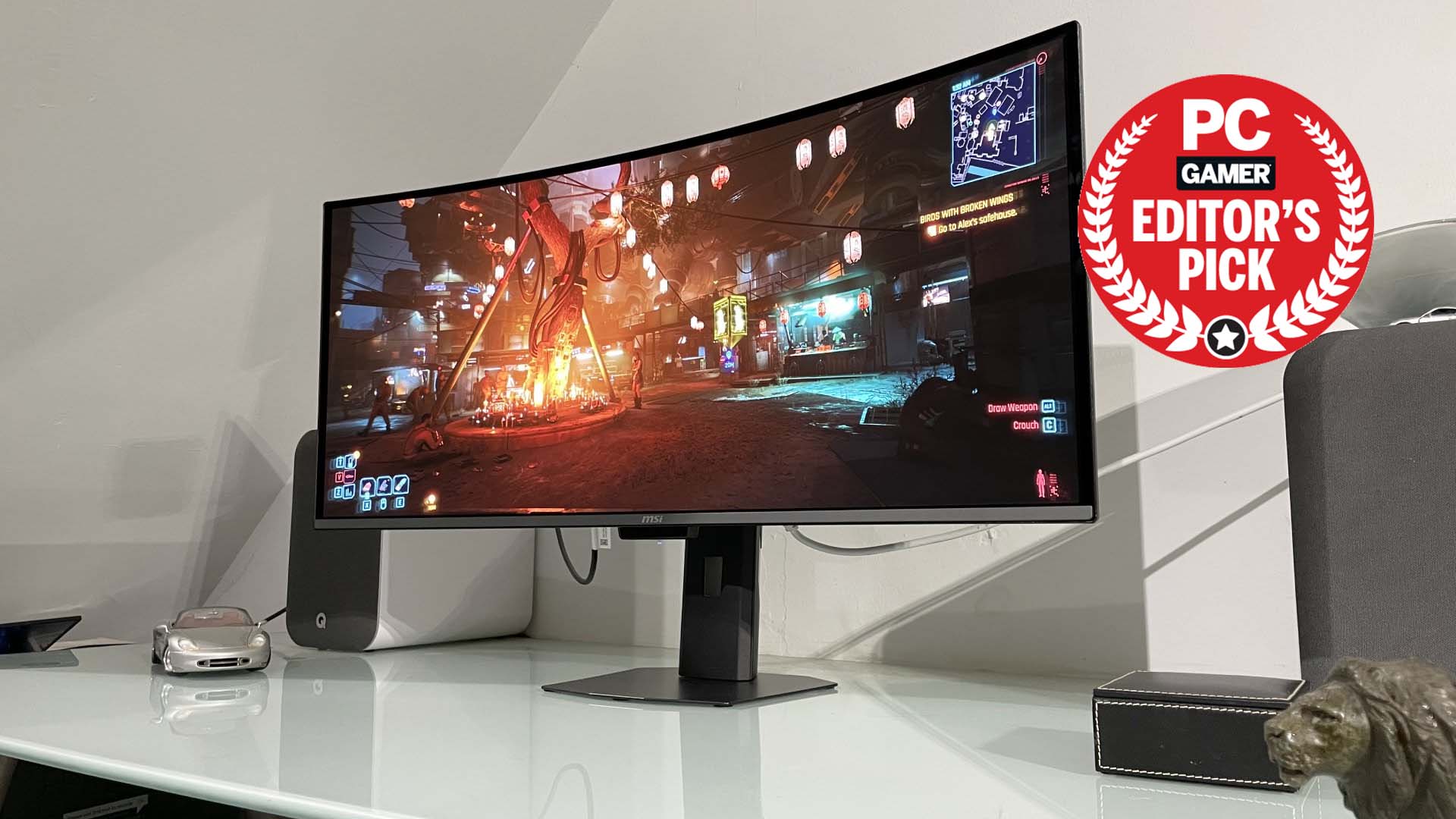
PC Gamer: How does that data gathering work? I like to imagine you have this Cape Canaveral-type control center, with big boards of scrolling numbers going “on NA there are 6,000 midrange hunters playing right now.”
BB: We can see from a lot of different perspectives. We can see by class, we can see by a core grouping of cards, and we can see by individual cards—so we can see exactly how many times a deck with Grim Patron in it wins the game. Or a deck with a combination of Warsong Commander, Frothing Berserker and Death’s Bite. And we can see that not only just by legend players, or by the top 50 Legend players, but across the entire ladder—we can look at individual players and see their win rates with individual decks. So, we have a lot of tools for mining out what the best decks are. But the perception and reality are sometimes different. Mostly, even power level reasons aren’t why we nerf things—it’s how fun cards are to play against. And certainly we have a lot of feedback that Patron isn’t the most fun deck to play against, but again, TGT has just come out, people are experimenting so much, so I feel like it would be a little too hasty to jump into nerfs.
PC Gamer: Given that Kezan Mystic won’t really do that much against Secret Paladin's Christmas tree effect [see top image for why it's called that—Ed] and only Hunters have Flare, can we expect different anti-secret tech cards at some point?
BB: It’s possible. I definitely like providing players with tools, but I have been talking to some players and getting their thoughts on the Paladin Secret deck and they felt like players were sleeping on some of the tools that were already in the environment. So, our job is to provide tools so that when decks get a little too good players can adapt and respond and change their deck types, and maybe there are some tools that already exist that players aren’t using right now.
PC Gamer: I saw someone running Stonetusk Boar just to proc the Noble Sacrifice. Maybe I’ll try that. Given the nature of the Rogue’s hero power, was it a struggle to find good Inspire synergies for the class?

BB: Yeah, certainly. We tried some things with Poisoned Blade, but not every set mechanic is going to interact perfectly with every class or deck type. I don’t know if Dragons work particularly well with Hunter decks, and that’s fine. We still wanted to be able to explore this space and Rogue decks didn’t get Inspire cards, but they got some other cards that explored different spaces and maybe next set they’ll get some other stuff.
PC Gamer: Can you talk to me about how you would get value from Poisoned Blade, because that is a card that’s received a lot of… well, not love.
Keep up to date with the most important stories and the best deals, as picked by the PC Gamer team.
BB: Certainly. Once upon a time, the Rogue hero power was the most complicated hero power in the game. It had two effects. Equip a 1/2 dagger, which is what it does today, and if you already had a weapon, give it +1 attack permanently. There was a very powerful deck at that time that would spam the hero power, buffing the weapon slowly over the course of the game, and then attack. There was a different card at the time, but it was basically similar to Blade Flurry, that let you do lethal damage very quickly. Even today, if you use a combination of Deadly Poison and your hero power to buff the Poisoned Blade, you could get it up to about 8 attack. You’d attack once, next turn attack again, Blade Flurry, and you’d do almost total lethal damage, just with a couple cards. So they represent a huge amount of damage potential with the Poisoned Blade, but if you weren’t exposed to the world in alpha where this was incredibly powerful, the effect doesn’t seem that good, but having played against decks that relied on controlling the board and slowly building up your weapon by using the hero power, it definitely has potential to be quite powerful.
Randomness can, in a lot of cases, increase the amount of skill required to play the game.
PC Gamer: Do you think people are sleeping on Poisoned Blade then?
BB: I don’t know. I’ve seen effects like that become quite good. I don’t know if Poisoned Blade specifically is above the line for a very, very powerful deck or not, but it’s easy to miss cards because they don’t seem powerful at first and then, later on, people discover they’re more powerful than they are.
PC Gamer: I’ll have to start teching Harrison Jones back in to deal with the Poisoned Blade meta. There was quite a bit of talk about RNG after the final in which Kolento lost to Tom60229 after his Deathlord drew Archmage Antonidas. When you’re doing design, do you worry about the game’s viability as an esport, or is that a completely secondary consideration?

BB: To me, the most important thing is to make a fun game. But, I don’t think that that trumps, in any way, making a viable esport. An esport, I think, most of all should be fun for players to watch and skill-testing for competitors. And randomness I think gets a bad rap sometimes as you either have skill or you have randomness and you can’t have both, but a lot of the time, the subtle randomness to the game, even just the card draws, and the ability to respond to a random event or try to control the board so random events play in your favor—that’s actually a very skill-testing thing. So randomness can, in a lot of cases, increase the amount of skill required to play the game.
PC Gamer: Also, if you put Deathlord in your deck, that’s the pact with the devil you make. He’s going to win you a ton of games because he’s going stop the rush decks, but he’s also going to cost you a few games, and you chose to make that decision.
BB: It’s true, but even depending on what pops out of your opponent's deck, better players will analyze that scenario and figure out how to deal with the influx of whatever it is that comes out. And sometimes randomness does screw you, but on average, randomness adds more skill to the game than it takes away.
PC Gamer: What does you think it is about the very top level tournament players, like Lifecoach, Firebat and Kolento, that makes them able to win more consistently than other pros?
BB: Well that’s an argument for why randomness does not necessarily nullify the skill requirement to play the game. Any kind of game that has consistency in its winners shows you that skill is very important. As far as what makes them better, I mean those guys practice a ton and they’re incredibly smart. They’re always thinking, not only about how to win the game, but about what their opponent is thinking and might be planning.
On the next page: Hearthstone's skill cap, deck slots, and Brode's highest ranking...
With over two decades covering videogames, Tim has been there from the beginning. In his case, that meant playing Elite in 'co-op' on a BBC Micro (one player uses the movement keys, the other shoots) until his parents finally caved and bought an Amstrad CPC 6128. These days, when not steering the good ship PC Gamer, Tim spends his time complaining that all Priest mains in Hearthstone are degenerates and raiding in Destiny 2. He's almost certainly doing one of these right now.


